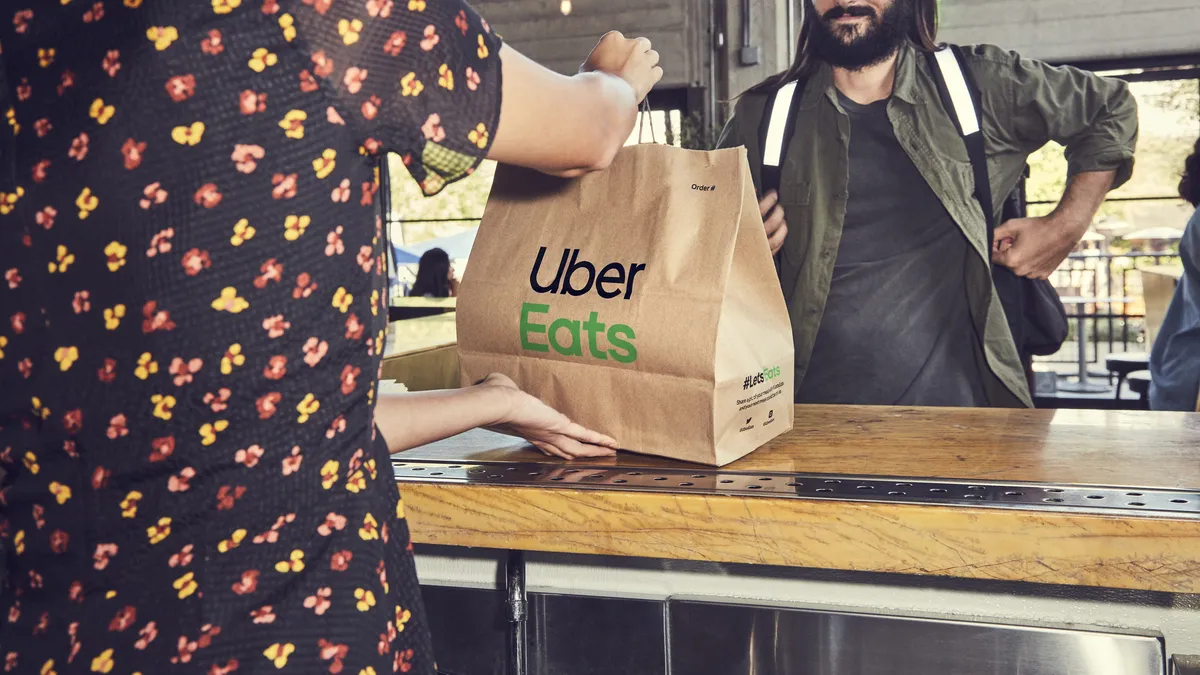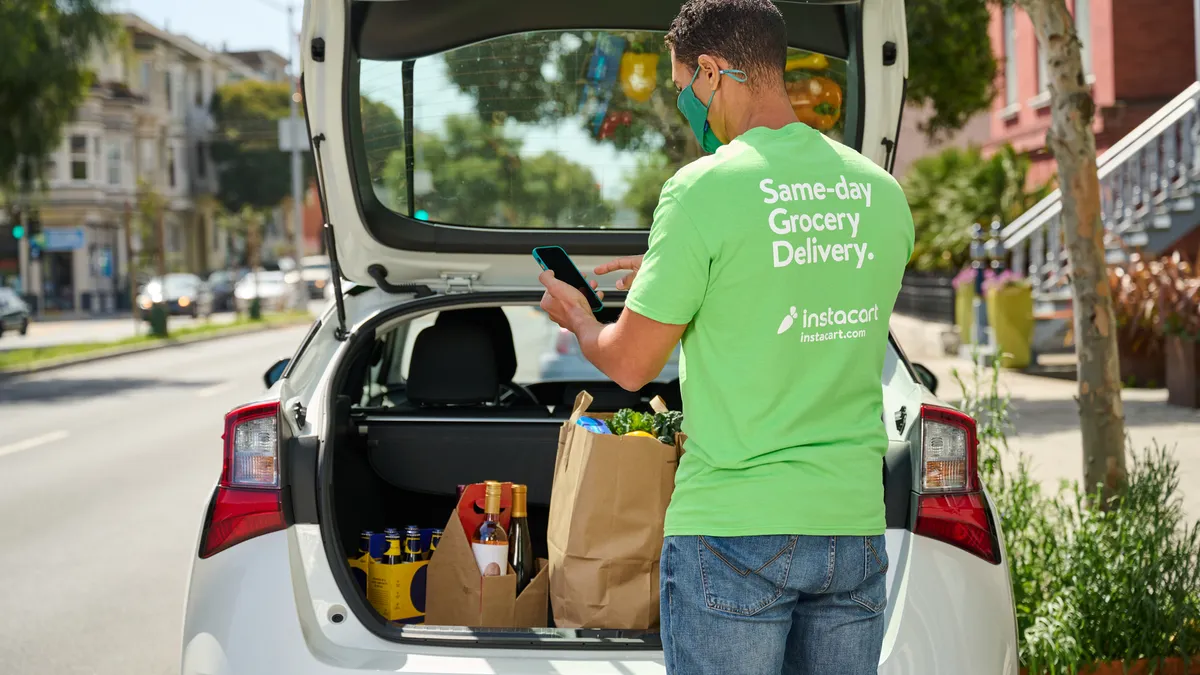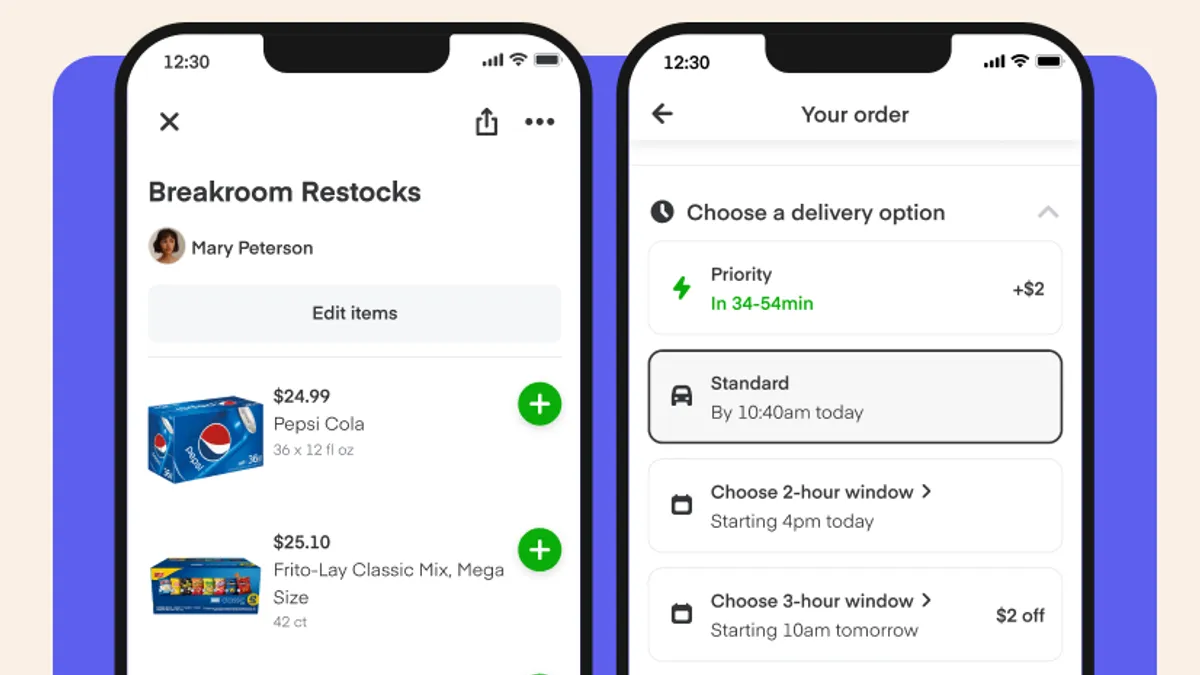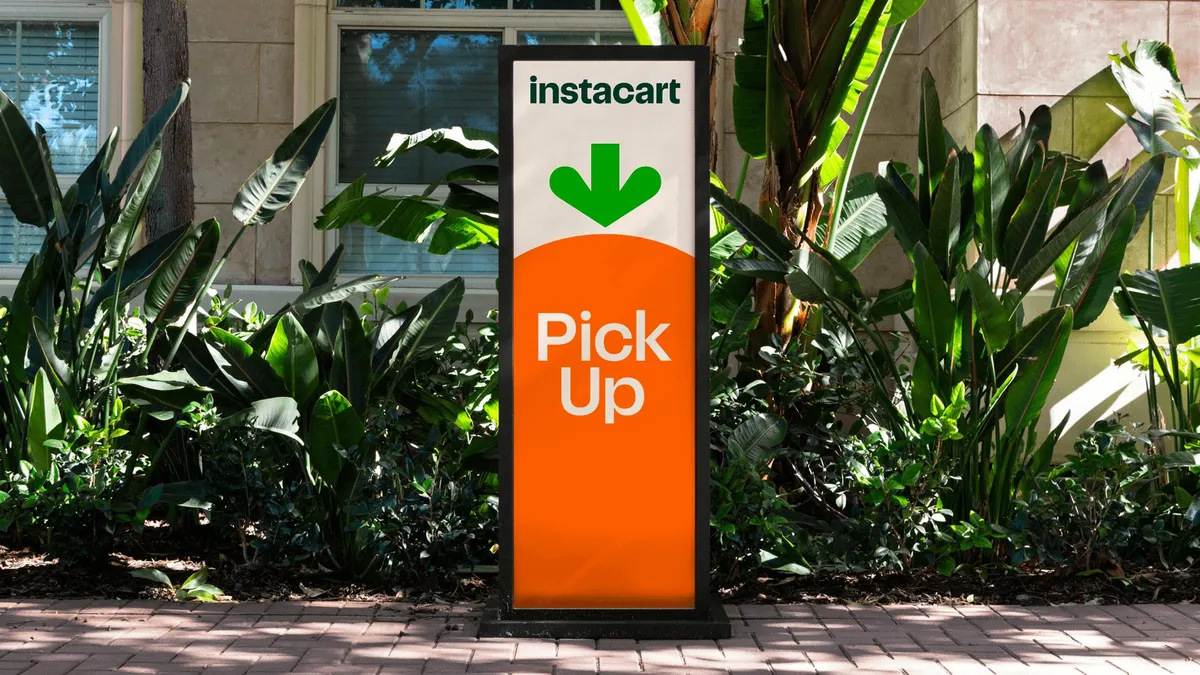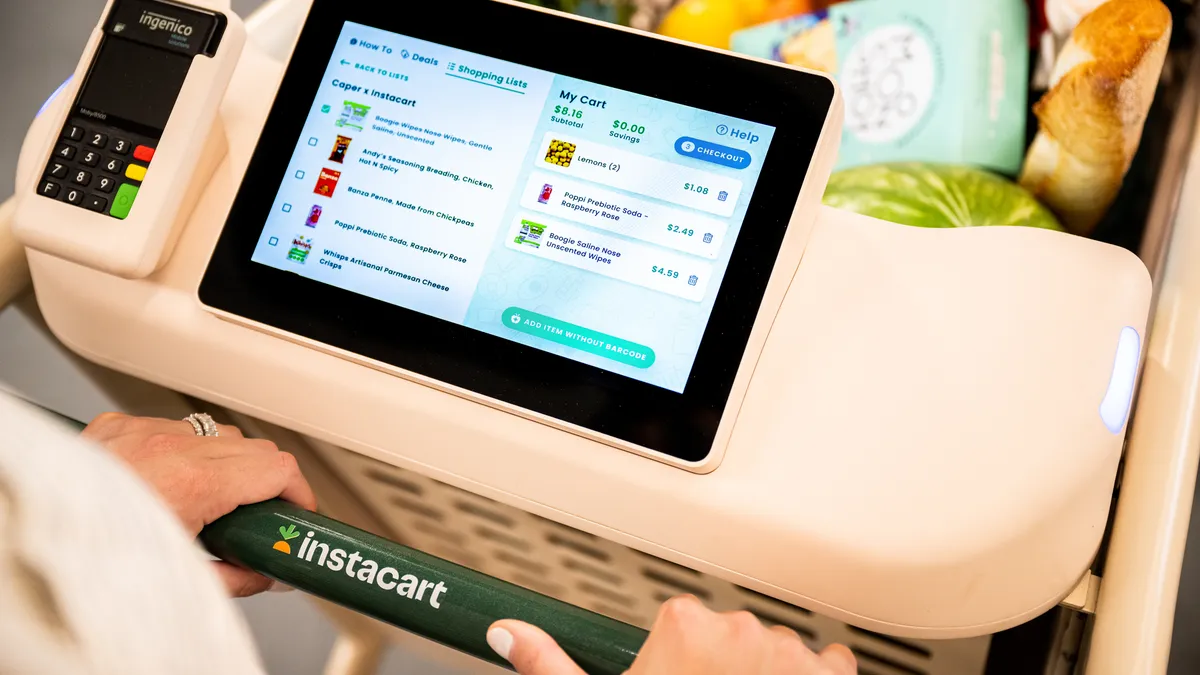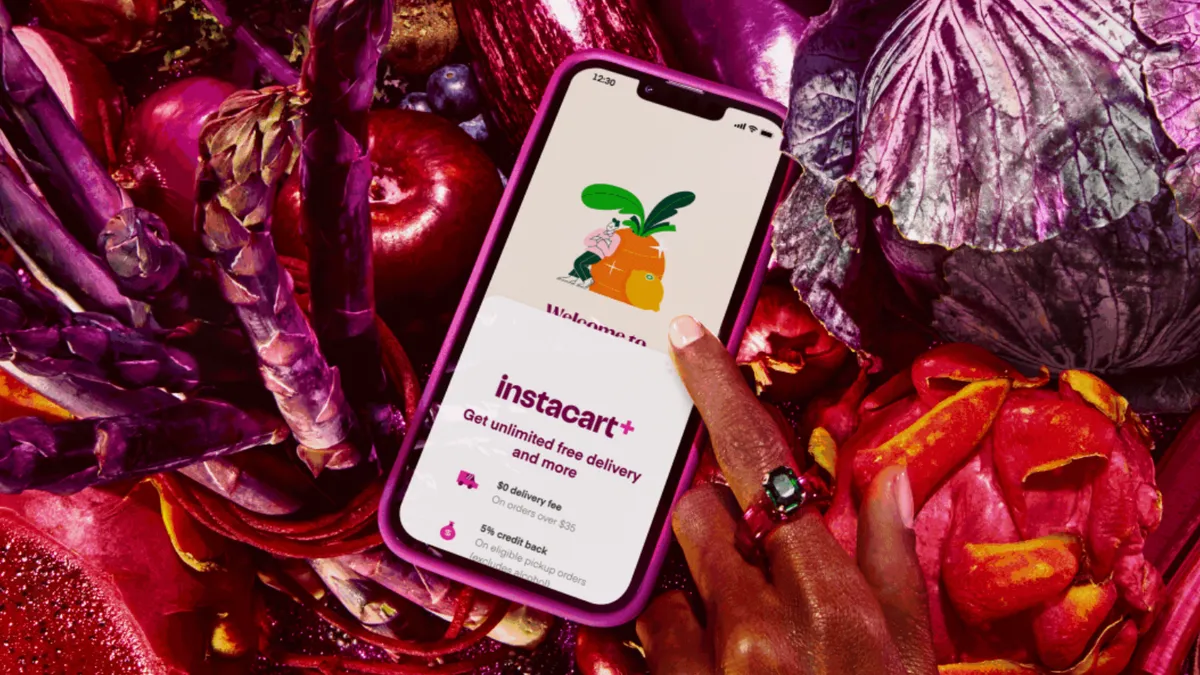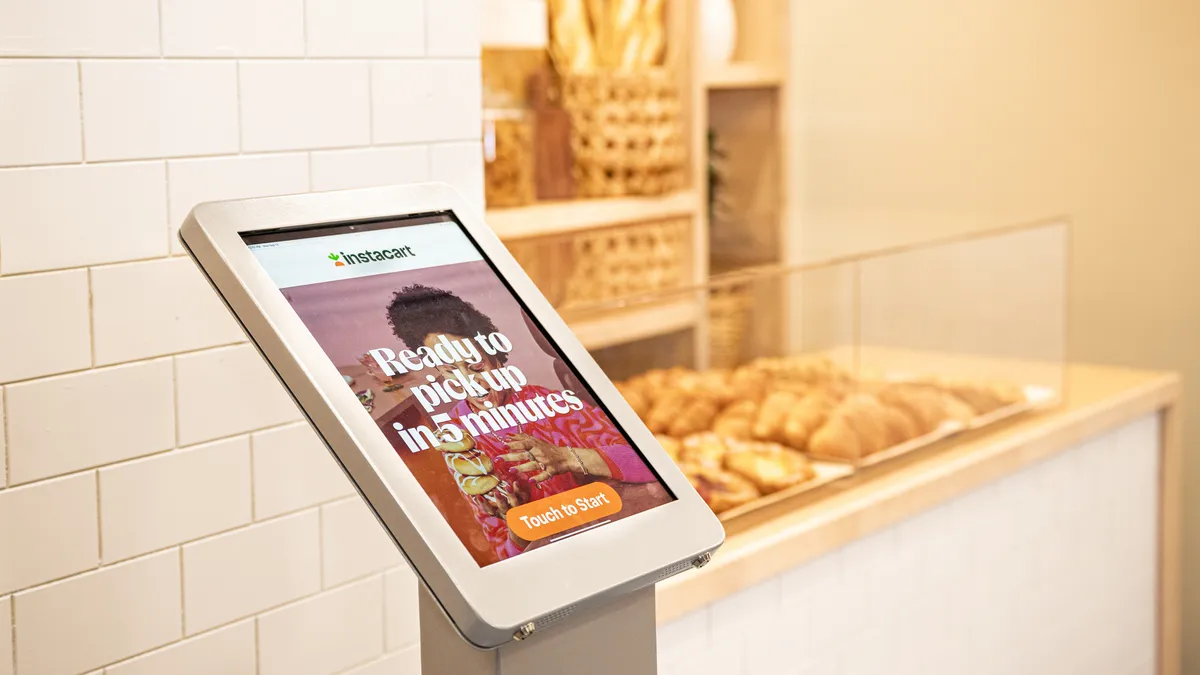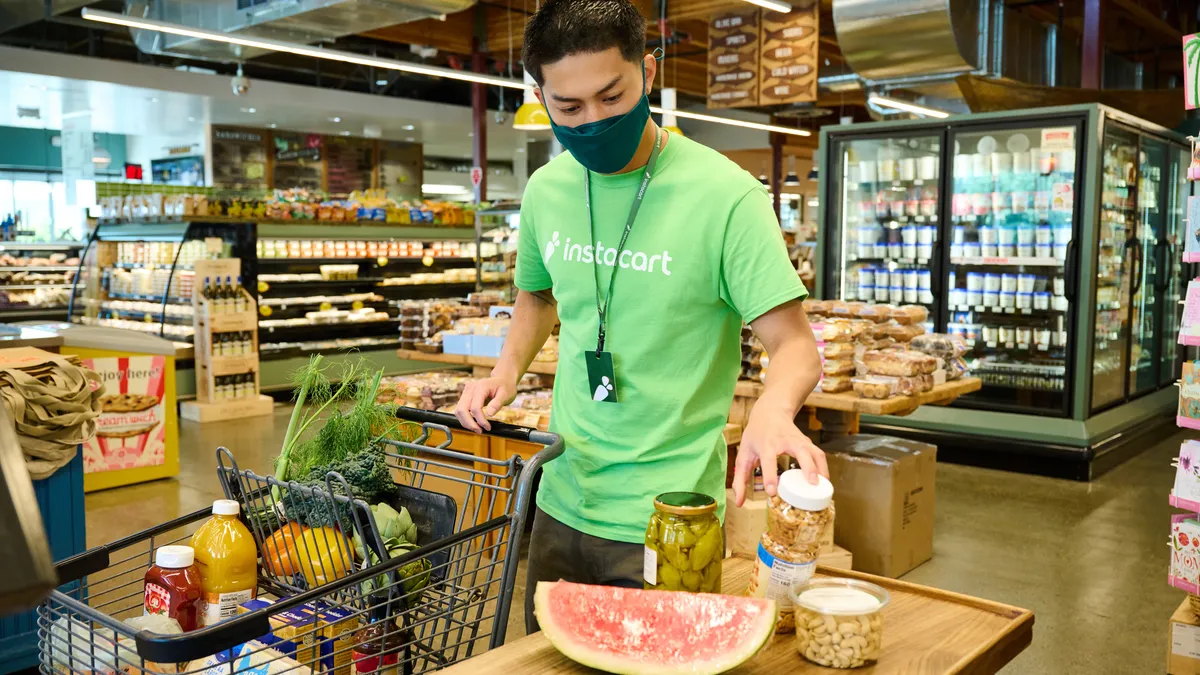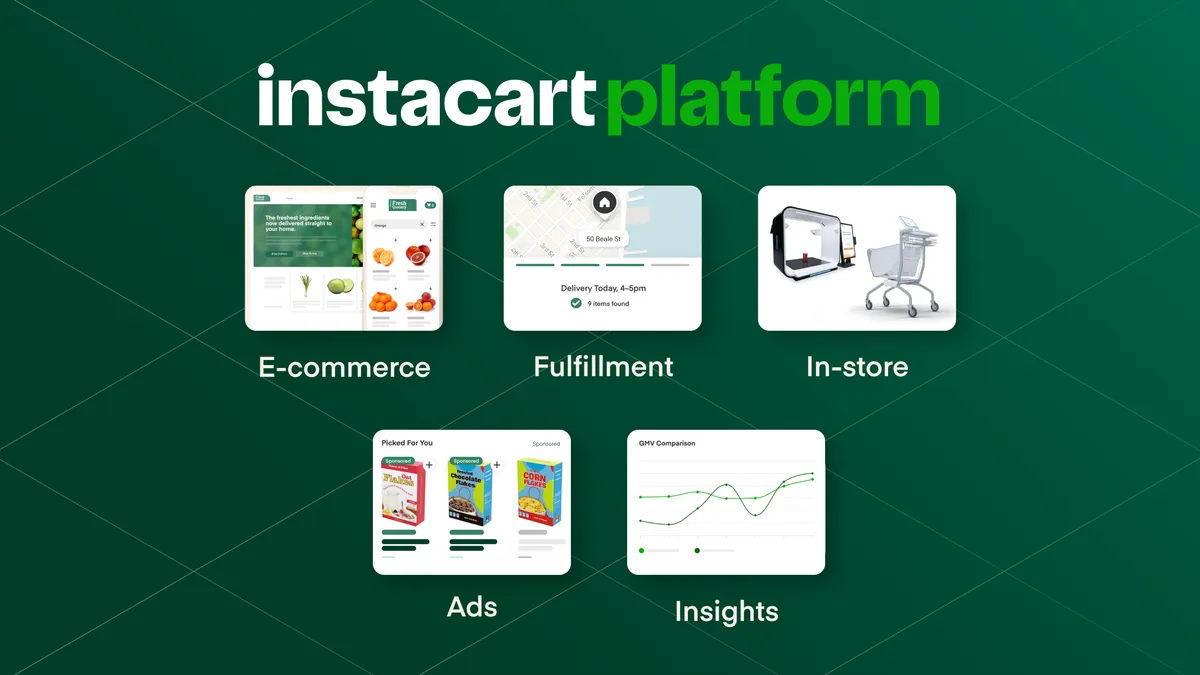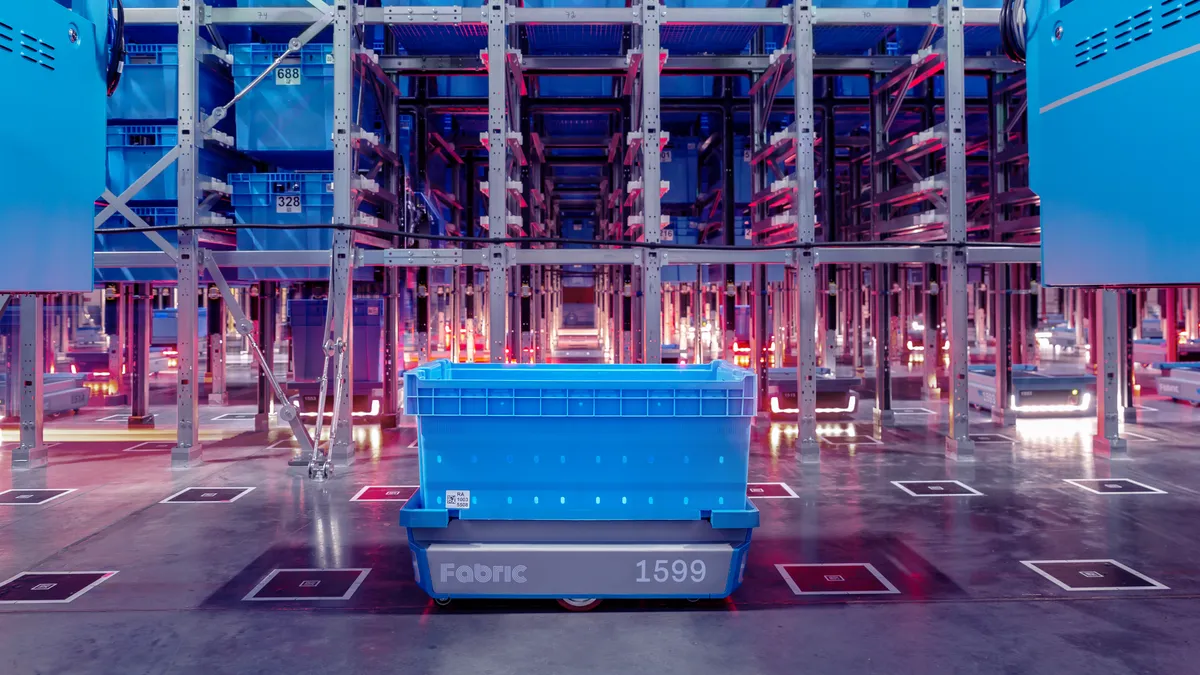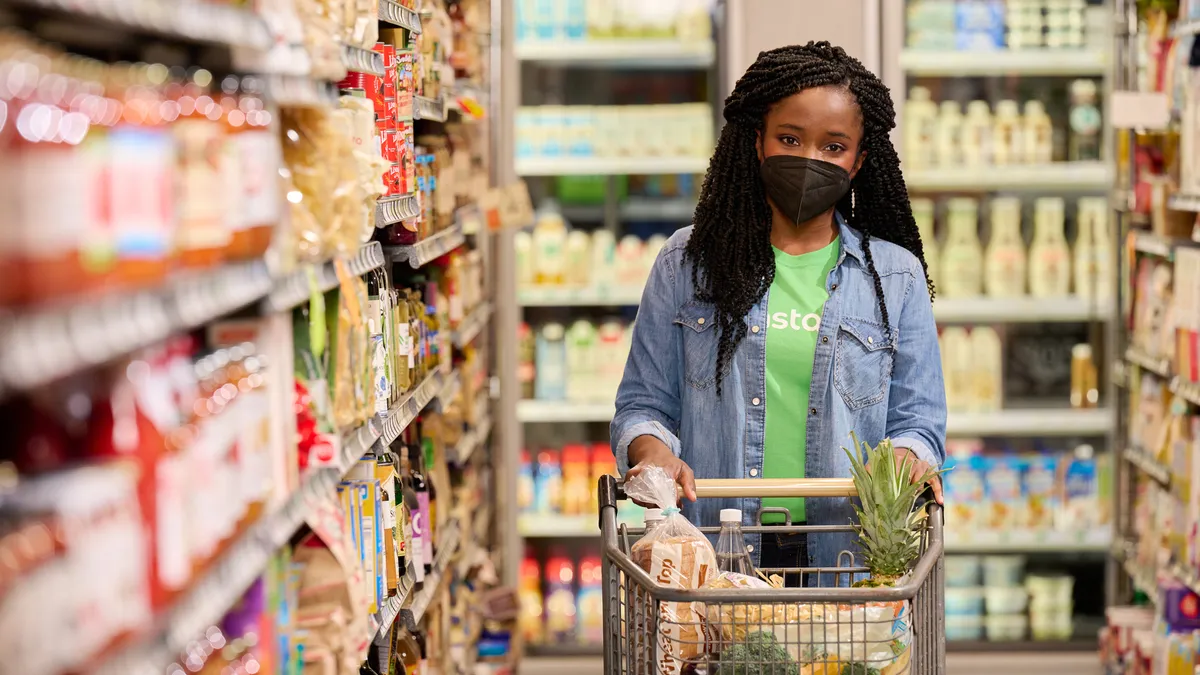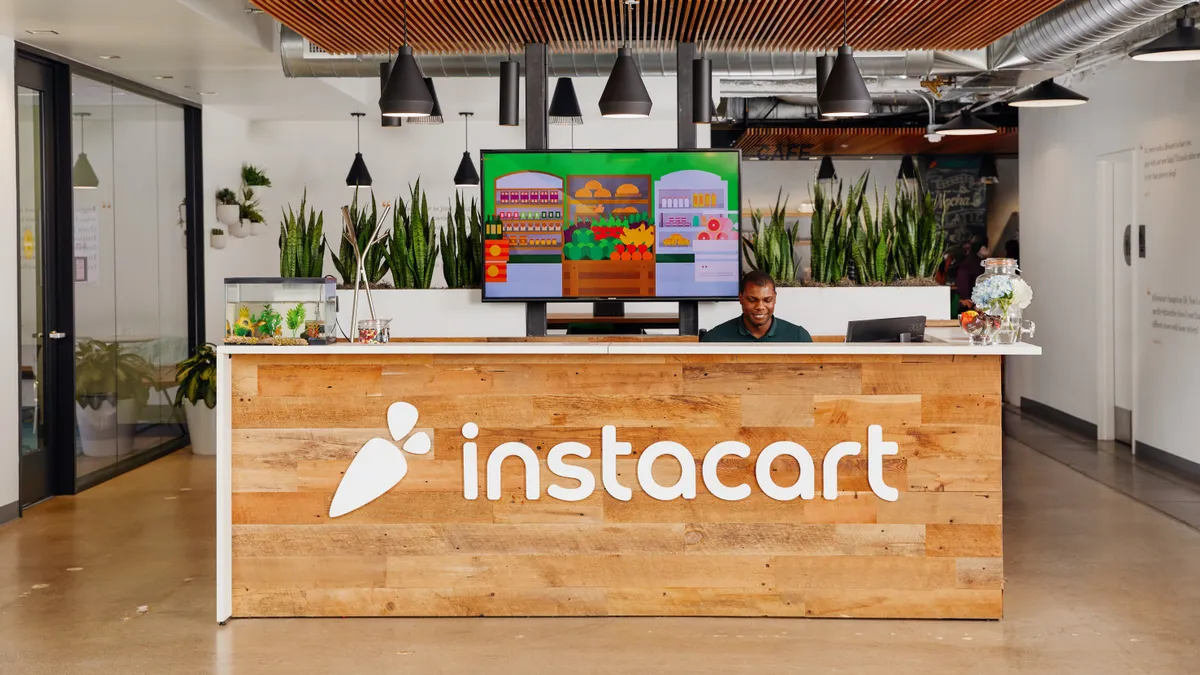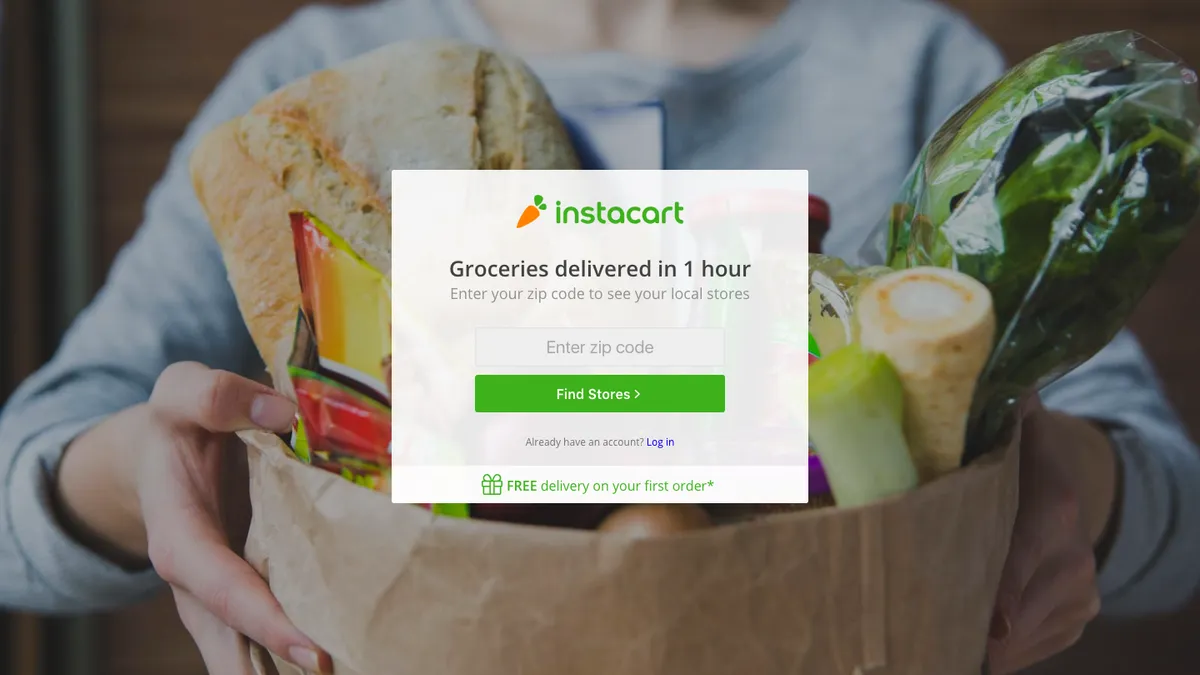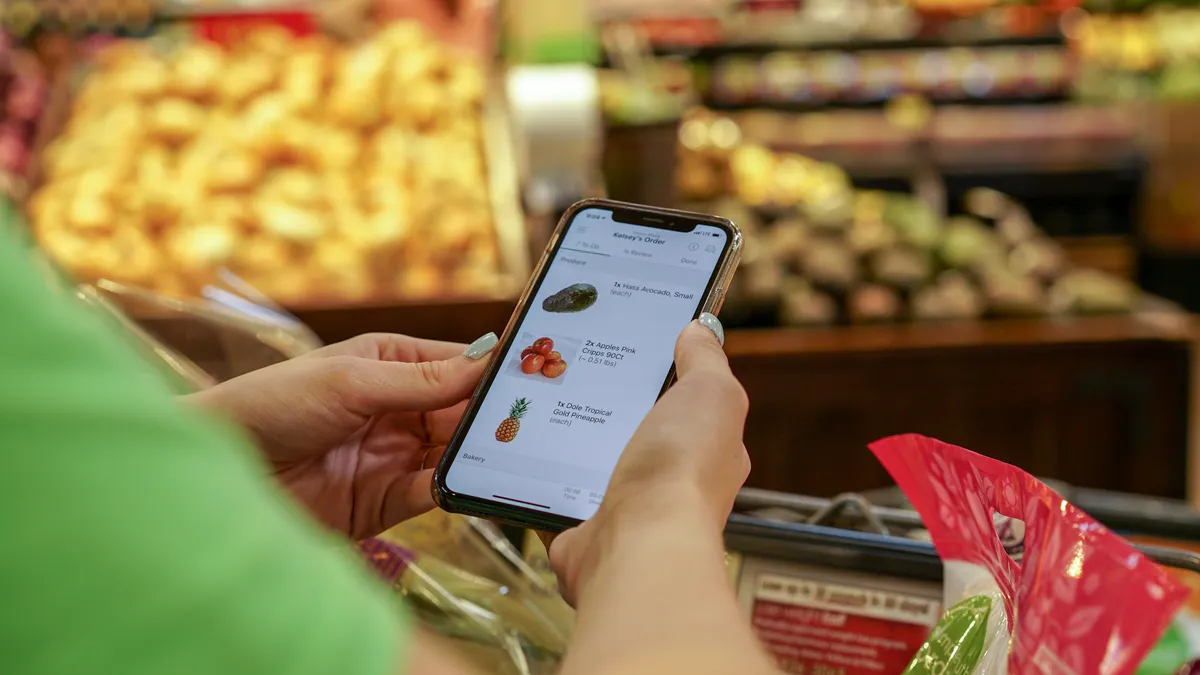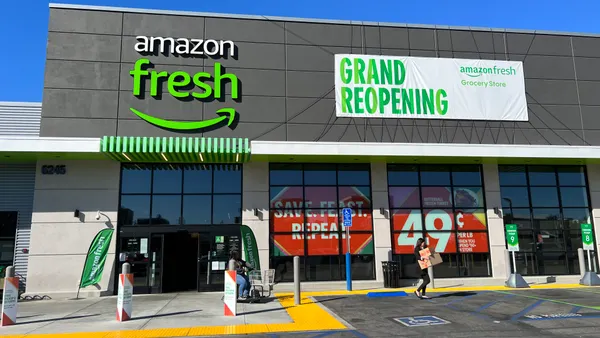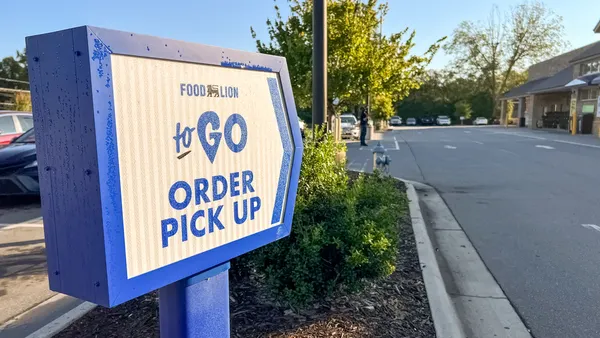Dive Brief:
- Daniel Danker, head of product at Uber Eats, said on Twitter Monday that he is joining Instacart as vice president of shopper and fulfillment. Danker had served as head of product at Uber Eats for 14 months, according to his LinkedIn profile. The Information first reported Danker's departure on March 5, and said that he helped expand Uber's delivery business into groceries in 2020.
- Uber will bring its product divisions together under its newly promoted Chief Product Officer Sundeep Jain, the company said in an email.
- "We're grateful to Daniel for helping to accelerate Uber's delivery product over the last year, and wish him all of the best with his next adventure," an Uber spokesperson said in a statement. "To offer a more deeply integrated consumer experience across our mobility and delivery platform, we are taking the opportunity to reorganize our product teams to reflect that."
Dive Insight:
Danker's departure to rival Instacart is a blow to Uber Eats as the company tries to establish itself as a major grocery delivery player. This diversification is part of Uber's path to profitability, the company has said in the past.
While Uber continues to hemorrhage millions of dollars every quarter, Instacart generated its first monthly profit in April, raking in $10 million in revenue. The grocery giant is valued at $39 billion, is headed toward an initial public offering and could further widen its lead over Uber's grocery division with Danker in its executive suite.
In recent weeks, Instacart has rapidly beefed up its executive ranks with hires from Facebook, Lyft, LinkedIn and other high-profile companies, and aims to increase its corporate staff by 50% this year.
Today I’m joining @Instacart as VP of Shopper & Fulfillment. Instacart makes daily experiences more convenient while enabling 500k people to earn on their own terms. I’m excited to join the amazing team @ApoorvaMehta has built and work with an incredible leader like @AshaSharma.
— Daniel Danker (@mrdanieldanker) March 8, 2021
This marks the second major leadership exit in the past week for the restaurant delivery giant. Uber confirmed on Friday that Stephane Ficaja, head of Uber Eats' U.S. and Canada divisions, has been replaced by Sarfraz Maredia, current leader of Uber's rides division in the U.S. and Canada. Ficaja held the position for only six months.
Uber may be restructuring some of its internal operations as product operations is now nested under Jain. That could be a result of integrating Postmates and Drizly within its system. The company has already put more focus on its delivery business, which is critical in the current pandemic environment, especially as Uber's ride-sharing revenue nosedived by $4.6 billion in 2020, according to an SEC filing. During Uber's Q4 2020 earnings call, CEO Dara Khosrowshahi said that Uber expects "incremental investment of roughly $40 million to $50 million toward Postmates, groceries and other new verticals."
"The unit economics already work," Khosrowshahi said of grocery on the call. "We have a global audience, and that's, we think, a substantial strategic advantage versus our competition. It's really the merchant relationships that we have to work on. And in many markets, we are in great shape and in some markets, we have to develop those merchant relationships."
In November, Khosrowshahi said during an earnings call that Uber's grocery delivery operation generated gross bookings at a $1 billion annualized run rate in September and is on pace to significantly increase that rate this year. Uber launched grocery delivery through both its main app and the Uber Eats app in July, partnering with chain grocers and regional brands. Order collection and deliveries are fulfilled by workers with Cornershop, the Chile-based grocery delivery app that Uber acquired in 2019.
That launch came just a day after Uber announced its acquisition of Postmates, which was already delivering groceries. Uber calls Postmates an "early player in delivery-as-a-service," which aligns with Uber's vision to double down on its Eats business and expand beyond fulfilling just restaurant meals.



